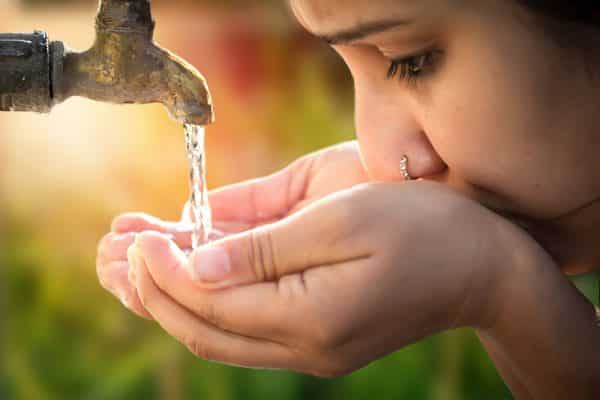
Water-starved parts of Rajasthan back in India could soon have easier access to potable water thanks to the work of researchers at the University of Adelaide.
The scientists intend to localise for Rajasthan, a simple water purification kit, already used effectively in Papua New Guinea. It uses the most basic materials – a glass tube, metalised plastic and sunlight – to turn dirty river water, stagnant rainwater and ground water into pathogen-free drinkable water.
“These kits use sunlight to kill pathogens, making the water safe to drink,” said project leader Dr Cristian Birzer, Senior Lecturer in the University’s School of Mechanical Engineering and Director of the Humanitarian and Development Solutions Initiative at the University.
The researchers claim this simple device can reduce harmful E.coli from 1 million units to below 1, besides removing other pathogenic contaminants.
With each kit expected to benefit approximately 25 people by producing up to 10 litres per day of safe drinking water, the research team hopes to help a big chunk of the state currently sustaining on poor quality water.
Dr Birzer added, “In India, the water also contains heavy-metal contaminants and we need to do some onsite assessments for pathogen, heavy metal and other toxins to be able to modify the kits for Rajasthan.”
For instance, the local Indian plant Moringa can be used to remove arsenic from contaminated water and could be mixed into a sand filter as a simple addition to the system.
“Once we’ve designed the kits, they will be produced in Rajasthan and distributed to the community through local partners,” Dr Birzer revealed.
Number Crunching
* Target Funds: $30,000
* Average cost of one water purification kit: $30
* One kit benefits: ~25 people
* All donations over $2 are income tax deductible (in Australia)
What a $30 donation (minimum) can do:
Provide one water purification kit to a family in Rajasthan
· Help convert up to 10 litres of contaminated water into potable water/ hour
Further, the researchers will provide the blueprints and technical know-how to continue production and manufacturing for the local market.
The university is currently crowd-funding to raise a sum of $30,000, needed to produce 1000 kits. The fund raiser, active on the university’s website, has managed to garner much support from the Indian as well as mainstream community. More than one quarter of the required funds has already been raised by the research team and it will conclude the initiative on 28 November.
About Rajasthan
- Has a population of 79.79 million (5% of total Indian population)
- Comprises approximately ten percent of India’s land mass
- Has access to just one per cent of the country’s water resources
- Over two-thirds area is classified as a desert
- Still remains a major producer of agricultural crops
Source: University of Adelaide report
The University hopes to send a team to Rajasthan shortly to assess the water quality in specific regions and at specific times of year. The research team headed by Dr Cristian Birzer includes Dr Georgina Drew who has over twelve years of experience working on the relationship between culture and water resource management in various parts of India including Rajasthan, and microbiologist Dr Stephen Kidd who specialises in identifying and characterising harmful bacteria that persist in environments.
The team will engage with communities and conduct assessments on local water quality, manufacturing capabilities, and supply-chain limitations to develop and implement a customised solution to tackle the high concentrations of fluoride and arsenic in the water, which come from the aquifers themselves, plus a range of pathogens found in storage systems.
With their experience in water reform, management, conservation and re-use, the South Australian public and private sectors are already working closely with Rajasthan – which enjoys a Sister State relation with South Australia – to develop options to improve water management and allocation.
Facts and Figures
- 680 million people around the world do not have access to fresh drinking water
- Approximately 1.5 million people, mostly children, die from drinking contaminated water each year
Source: AusAid, 2012
Dr Cristian Birzer told Indian Link, “We are in touch with officials in Rajasthan and really want this to go through. The public support here for the project has been positive, and we are hoping to raise the required money. Our team is getting ready to travel to Rajasthan early next year to get this rolling”.
To contribute, go to:
https://universityofadelaide.pozible.com/project/world-first-water-filtration-system





